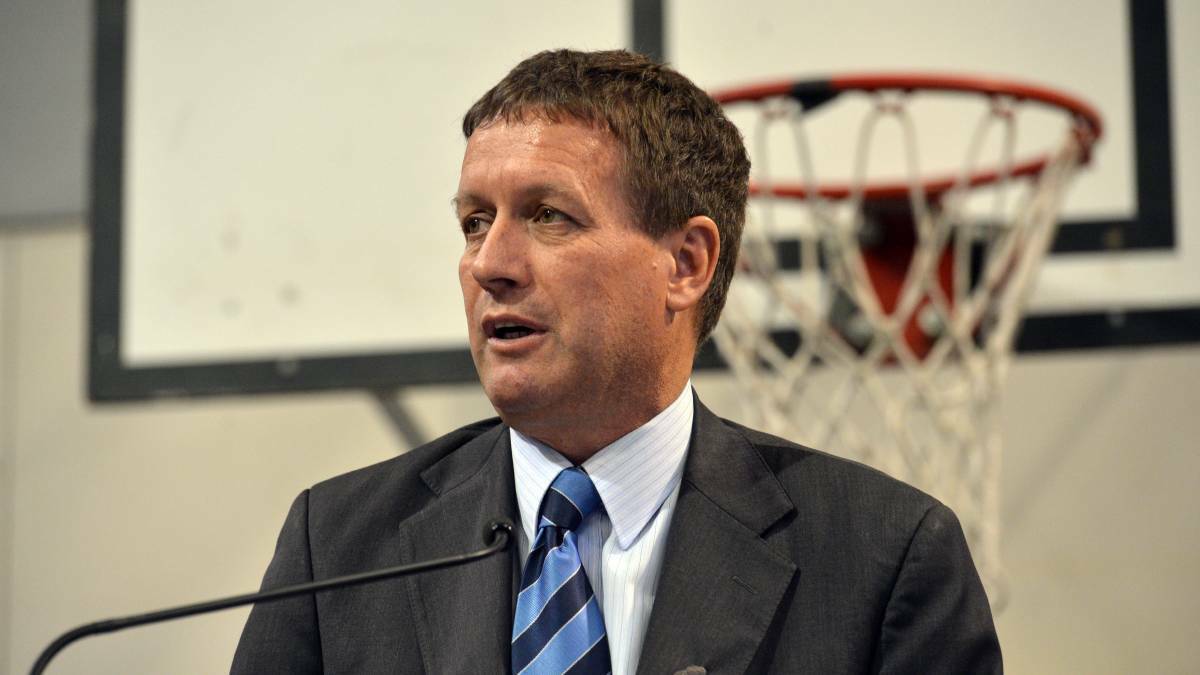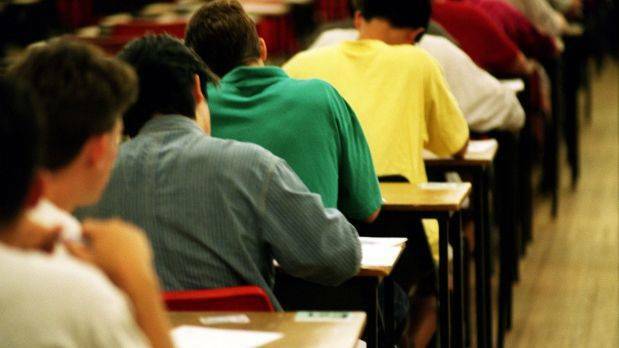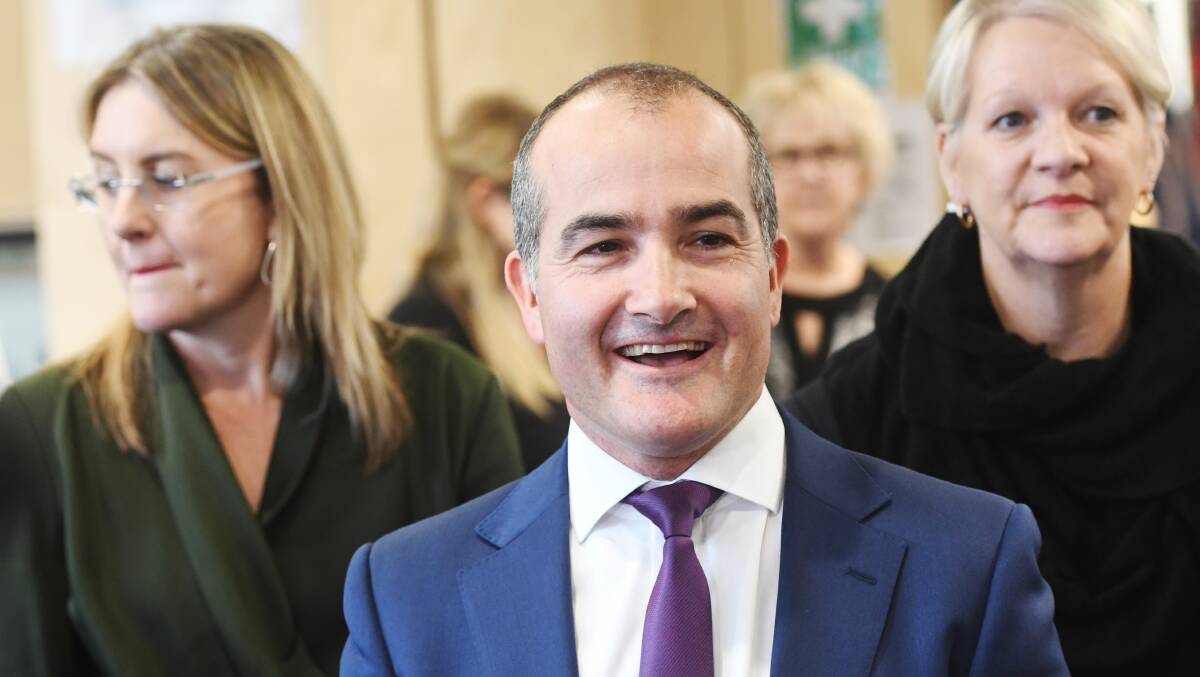
4pm
Subscribe now for unlimited access.
$0/
(min cost $0)
or signup to continue reading
BENDIGO has experienced the rising rates of social disadvantage, affecting many regional schools.
This disadvantage was a key factor identified by a report into rural and regional students released by the Victorian government on Thursday.
The report found that rural schools score higher on some measures than do regional schools. It suggested rising rates of disadvantage explained this in part, while regional government schools also faced a more competitive educational marketplace.
Bendigo Senior Secondary College principal Dale Pearce said Bendigo was experiencing increasing levels of social disadvantage, as it took in people relocating from both rural areas, and regional areas.
Read more:
Mr Pearce was among the experts who researched and wrote the report.
Some of those relocating to Bendigo brought with them quite a high level of need, with concentrations of disadvantage in parts of Bendigo, he said.
Mr Pearce said the challenge of providing educational experiences for more challenged families and students fell very heavily on the government sector, meaning schools needed additional support to support those students.
He said the report highlighted the need for schools to network to support and learn from each other, particularly in rural areas.
The report also found that a more competitive educational market put pressure on government schools in regional areas.
Mr Pearce said Bendigo's government schools experienced this pressure from non-government schools.
He said major regional centres had competition between schools in different sectors, with government, Catholic and private schools.
This created the potential for further social segregation and concentrations of advantage, Mr Pearce said.
Mr Pearce said a key recommendation of the report was to establish two consultative groups, one for rural schools and one for regional schools.

He also called for the education sector to do better in terms of access to higher education outside of Melbourne, saying there was a role to play for universities such as LaTrobe.
"LaTrobe's been a wonderful supporter and collaborator with schools in Bendigo and beyond," Mr Pearce said.
"I'd like to see regional kids having access to a really wide range of university and TAFE pathways in regional Victoria, rather than have to relocate."
Read more: Bendigo schools ahead on phone ban
Crusoe College principal Brad Madden said student support - providing services like psychology, social work and speech pathology - stood out among the report's recommendations.
Mr Madden said the department did have area-teams doing work like that, but there was a very finite amount of resources.
He hoped the report meant the department would commit more resources to such initiatives.
The report had identified the issues that had been brought up by educators and communities, which was a good starting point, Mr Madden said.
Read more: Specialist teacher shortfall hurting regions
Results from the report taken would be likely to play out over time, he said.
Mr Madden said Crusoe College, like all schools in Bendigo had people from a range of backgrounds, in terms of families' employment history and students' backgrounds.
Providing pathways and opportunities that all students needed was one of Crusoe's challenges, he said.

Expert panel chair David Howes said there were plenty of instances where education provided in regional and rural areas was fantastic, but the report wanted to say there was more to be done.
Mr Howes said in Bendigo there was focus on the particular challenges that regional centres face, such as difficulty attracting high-quality teachers.
He said community forums had spoken, saying that people in regional and rural Victoria needed support to establish high aspirations and wide expectations so they could make informed choices.
Community forums were a key part of gathering information for the report.
Mr Howes said this meant the report wasn't just a review of the data, but gleaned from the personal experiences of people on the ground.
He said rising levels of disadvantage, that regional areas had perhaps previously been sheltered from, had been reported in these forums.
"What we certainly heard that kind of disadvantage and the kind of trauma that young people are coming to school with was different," Mr Howes said.
"We heard that in relation to the challenges around mental health and we heard that in the challenges that some students face in having experienced trauma."
Earlier
A REVIEW of the Victorian education system has found that rural schools are performing better than regional schools on some measures.
A more competitive environment is putting regional schools under increased pressure as they face greater presence of non-government schools, according to a report from the Expert Advisory Panel for Rural and Regional Students released on Thursday.
Increasing levels of social disadvantage in regional areas may be another factor causing this difference
Read more: Private to public drives growth at BSE
Education Minister James Merlino established the advisory panel in June, to find out why rural and regional students were falling behind their metropolitan counterparts.
The panel canvassed the views of local principals, students and regional education experts at forums in Bendigo and across rural and regional Victoria.
The panel made a suite of recommendations in its report to combat these lower educational outcomes.
Creating a five year strategic plan for rural and regional education was among the recommendations. This plan would recognise and address the specific opportunities and challenges in rural and regional areas, the report stated.
The panel also recommended government establish both rural and regional education consultative groups to implement this plan.
The report also called for the government to consider a range of options to help students, schools and families to develop wide aspirations, high expectations and make informed choices.
This might mean additional support for rural and regional students to access VCE study resources, or recruiting international students to expand the global awareness of students, according to the report.
School resourcing also came under the panel's eye, with recommendation that the government examine current funding models, including the definition of a "rural" and "regional" school.
The report also called for increased support, to make sure students' interests were placed at the centre of education.
The government should consider expansion of mental health support services to primary schools and increasing access to support staff such as paediatricians and speech therapists, the report stated.
Government should consider further steps to strengthen the development of inclusive culture among students and staff in rural and regional schools, the report stated.
It should also strengthen the provision of VCAL in rural and regional areas, support networks that deliver VCE subjects across multiple schools, review virtual learning and examine how it can support existing digital platforms, according to the report.
The report also called for incentives to attract high quality staff and strengthen professional development in rural and regional areas.
The government announced on Wednesday it would offer teachers incentives of up to $50,000 to relocate to regional and rural areas.
The government has committed $37 million to a suite of reforms in the light of the report.
This includes $13.2 funding for rural and regional students to attend VCE revision lectures in Melbourne.
Another $7.8 million will go to expanding professional development for teachers and leaders in rural and regional areas.
$5.1 million will go to support rural and regional schools to work in clusters to strengthen curriculum delivery.
A $3.7 million boost will support outreach and virtual programs for regional and rural schools.
Another $3.7 million will go to scrapping the enrollment fee for the Virtual School of Victoria.
$2.5 million will also increase access to mentoring, role models and information about post-school pathways.
Victoria's Tech Schools will also get $1.4 million to host science, technology, engineering and mathematics programs for rural and regional students.
NAPLAN data from across Australia shows regional and rural schools perform an average of 20 points below city schools.
In 2018 Country Education Partnership chief executive Phil Brown said central Victorian communities were struggling to attract staff.
Mr Brown said education in rural and remote areas was "in crisis", needing the education sector and political parties to commit to change.
The Bendigo Education Plan launched in July 2018 aims to help more students in the city achieve excellence.
The plan addressed lower than expected levels of achievement and retention in the City of Greater Bendigo.
In a recent report the Grattan Institute called for higher pay for top teachers, and scholarships for high achieving school leavers entering teaching, to raise teacher quality and student performance at Australian schools.
A typical student would gain an extra six to 12 months of learning by year nine under these reforms, the report found.
Have you signed up to the Bendigo Advertiser's daily newsletter and breaking news emails? You can register below and make sure you are up to date with everything that's happening in central Victoria.


